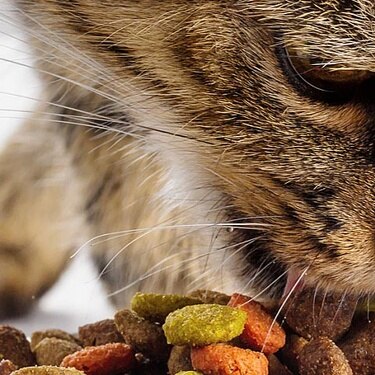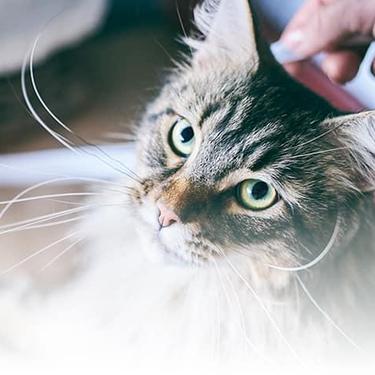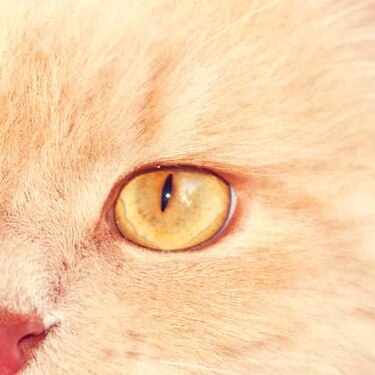
-
Find the right food for your petTake this quiz to see which food may be the best for your furry friend.Find the right food for your petTake this quiz to see which food may be the best for your furry friend.Featured products
 Puppy Food
Puppy FoodHill's Science Plan Puppy Multipack Wet Dog Food with Chicken & Beef are complete premium pet foods for growing puppies from weaning until 1 year old and for pregnant and nursing dogs. Your puppy will love these deliciously smooth and savoury minced loaves, formulated for balanced nutrition and overall health.
Shop Now Mature Adult Dog Food
Mature Adult Dog FoodHill's Science Plan Mature Adult Multipack Wet Dog Food with Chicken & Beef are complete premium pet foods for mature adult dogs from 7 years. Your dog will love these deliciously smooth and savoury minced loaves, formulated to deliver the appropriate amount of energy to support the needs of adult dogs.
Shop Now Adult Wet Dog Food with Beef
Adult Wet Dog Food with BeefHill's Science Plan Adult Multipack Wet Dog Food with Chicken, Beef & Turkey are complete premium pet foods for adult dogs from 1 year. Your dog will love these deliciously smooth and savoury minced loaves, formulated for balanced nutrition and overall health.
Shop NowFeatured products Sterilised Adult Cat Food
Sterilised Adult Cat FoodHill's Science Plan Adult Sterilised Cat Dry Food with Salmon is specially formulated with ActivBiome+ Multi-Benefit Technology. It is a precisely balanced nutrition, tailored to meet the needs of sterilised cats, to help keep them lean & healthy.
Shop Now Sensitive Stomach & Skin Adult Cat Food
Sensitive Stomach & Skin Adult Cat FoodHill's Science Plan Sensitive Stomach & Skin Adult Wet Cat Food with Turkey is a complete pet food for adult cats, aged 1–6 years. This highly digestible wet food comes in a pouch and supports healthy digestion, as well as nourishes skin and promotes a thick and lustrous coat.
Shop Now Hairball & Perfect Coat Adult Dry Cat Food with Chicken
Hairball & Perfect Coat Adult Dry Cat Food with ChickenHill's Science Plan Hairball & Perfect Coat Adult Cat Food with Chicken is formulated to effectively help avoid hairball formation in adult cats while promoting a beautiful coat. Thanks to its mix of essential omega-6 fatty acids, this food benefits the cat's skin and fur, keeping them healthy and shiny. Our Advanced Fibre Technology helps reduce hairballs by naturally promoting their passage through the gut. This food is formulated with high-quality protein for a perfectly balanced, great-tasting recipe.
Shop Now -
Dog
- Dog Tips & Articles
-
Health Category
- Weight
- Food & Environmental Sensitivities
- Urinary
- Digestive
- Joint
- Kidney
-
Life Stage
- Puppy Nutrition
- Adult Nutrition
- Senior Nutrition
Cat- Cat Tips & Articles
-
Health Category
- Weight
- Skin & Food Sensitivities
- Urinary
- Digestive
- Kidney
-
Life Stage
- Kitten Nutrition
- Adult Nutrition
Featured articles The Right Diet For Your Pet
The Right Diet For Your PetIn people, the right diet is very important. If you are eating the wrong way for your metabolism, activity level, age and lifestyle you could end up with health issues.
Read More The Incredible Science Behind Your Pet's Microbiome
The Incredible Science Behind Your Pet's MicrobiomeLearn what your pet's microbiome is, how it contributes to your pet's gut and overall health, and why nutrition is important in maintaining healthy microbiomes.
Read More Show some love with wet foods: a great choice for pets with health issues
Show some love with wet foods: a great choice for pets with health issuesShow some love with wet foods: a great choice for pets with health issues.
Read More -


Neutering offers benefits to both you and your beloved companion. Many vets recommend neutering cats early in their life to ensure no unwanted kittens, fewer worries for you, and health benefits for your cat.
The terminology around neutering can be confusing, but to define the language your vet will use:
Spaying is when a female cat has either her ovaries or both her ovaries and uterus removed.
Castration is officially defined as the removal of any sexual organs, but it’s most commonly used to refer to when a male cat has his testicles removed.
The word ‘neutering’ applies to both sexes and means that they are sterilised and unable to produce kittens.
The Benefits of Neutering (Spaying or Castrating)
Prevents Diseases
Spaying your female cat before her first oestrous cycle (coming into “season” or "heat", or being able to breed) greatly reduces the risk of mammary cancers later in life. This is because the levels of hormones such as oestrogen, which encourage the growth of certain cancers, are reduced. Also, the risks of ovarian tumours and uterine infections are much lower.
There are other diseases that can result from natural cat behaviour related to mating. Feline leukaemia (FeLV) and feline AIDS (FIV) are two diseases spread through infected cats biting other cats, according to the Blue Cross (these diseases are different from human AIDS and leukaemia, and cannot be transmitted from cats to people). By reducing your cat's urge to fight over mates and territory, you'll also reduce their chances of contracting these incurable diseases from other cats.
Reduces Fighting
Unneutered male cats are driven by hormones to seek mates and defend their territory against intruders. So two or more unneutered male cats in the same household, or even the same neighbourhood, can lead to fighting, especially if there's a female cat in heat nearby. By neutering your cats, you'll reduce their aggressive instincts and lower the chances of fights breaking out. Not only can this reduce the risk of catching FIV and FeLV, as previously mentioned, but your neutered cat is also much less likely to get injuries and painful abscesses.
Reduces Incidence of Roaming
When a female cat comes into season, both her hormones and instincts are urging her to find a mate. Remember that males are also driven by hormones and mating instincts. Neutering helps to prevent your cats from roaming too far in search of ‘love’ and will reduce their risk of incidents such as car accidents and climbing injuries...
Keeps the Home Cleaner
Male cats spray their urine on vertical surfaces to mark their territory. The pungent odour of an unneutered cat's urine alerts other males that there's another ‘man about the house’ nearby who has claimed the area as his turf, and tells females he's waiting for his opportunity to mate with her. An unneutered male cat in your house can be a messy and very smelly affair. Neutering a cat reduces or eliminates the urge to spray, and if they do, the scent should be much milder.


Tasty Tips
Female cats also pass bodily fluids when they come into season. These fluids also contain scents to alert males that a fertile female is nearby. By spaying your female cat, you'll eliminate the same problem.
When should you neuter your cat or kitten?
Your vet will recommend the optimal age at which neutering should be done. In general, most vets prefer to neuter cats between the ages of four and six months, before they reach sexual maturity.
What is the process of neutering?
The surgical neutering procedure is done under general anaesthesia. Your vet will explain it all to you and give you specific instructions for pre- and post-operative care. You may need to withhold food for a certain number of hours before the operation. Keeping your cat in the night before the surgery will help avoid them eating elsewhere and also make sure they are not out gallivanting when it’s time to go!
During surgery, your cat will be given an anaesthetic so they won't feel or be aware of what's happening. For male cats, a small incision is made and the testicles are removed. The incision is closed with either dissolvable sutures or surgical glue. Female cats may have a larger incision to remove the ovaries and/or the uterus. Some vets spay cats laparoscopically these days, which is less invasive. Most cats can usually go home the same day unless there are complications or special concerns.
Some vets will fit the cat with a body covering or a cone/collar after the surgery. This keeps your pet from scratching, biting, or licking at the surgical site while it's healing. Most cats do not need medication or special after-care. If your vet wants to see your cat again after the surgery, be sure to bring them in on time.
Will My Cat Be Different After Neutering?
After neutering, your cat will return to their old, playful self very quickly. Rest assured they’ll still be the same cat you've always known and loved, but with the added benefit of being more inclined to stay around the home and less likely to mark their territory.
Feeding Cats Post-Neutering
It’s not uncommon for cats to gain weight more rapidly after neutering, so it's important to make sure yours is kept active and fed the right amounts to stay at their ideal weight. Ask your vet whether you should change their food and make sure they get regular weight checks as they grow. This will help you keep them slim and healthy, and spot unwanted weight gain before it’s too late. The benefits of neutering your cat far outweigh any drawbacks. Yes, it can be scary to bring your beloved pet in for surgery, but it is well worth it when you consider the higher risks of serious diseases, unwanted kittens, wandering off and getting into trouble. If you haven't already done so, talk to your vet about having your cat neutered.


One of our staff authors prepared this article for you
Related products

Hill's Science Plan Sensitive Stomach & Skin Adult Wet Cat Food with Turkey is a complete pet food for adult cats, aged 1–6 years. This highly digestible wet food comes in a pouch and supports healthy digestion, as well as nourishes skin and promotes a thick and lustrous coat.

Hill's Science Plan Perfect Digestion Cat Food with Chicken & Brown Rice nourishes your cat's unique microbiome and helps them reach their full potential.

Hill's Science Plan Adult Sterilised Cat Dry Food with Salmon is specially formulated with ActivBiome+ Multi-Benefit Technology. It is a precisely balanced nutrition, tailored to meet the needs of sterilised cats, to help keep them lean & healthy.

Hill's Science Plan Hairball & Perfect Coat Adult Cat Food with Chicken is formulated to effectively help avoid hairball formation in adult cats while promoting a beautiful coat. Thanks to its mix of essential omega-6 fatty acids, this food benefits the cat's skin and fur, keeping them healthy and shiny. Our Advanced Fibre Technology helps reduce hairballs by naturally promoting their passage through the gut. This food is formulated with high-quality protein for a perfectly balanced, great-tasting recipe.
Related articles

From essential vitamins & minerals to different types of meat, learn what to look for when choosing the best cat food for your feline.

Learn how to make homemade cat treats that are healthy for your pet with this recipe from Hills Pet Nutrition.

Chocolate is known to be poisonous for dogs, but it can also be toxic for cats. Learn why chocolate is bad for cats & what to do if she's eaten it.

There are three common ways to feed a cat. Each way has its advantages and disadvantages.

Put your cat on a diet without them knowing
Our low calorie formula helps you control your cat's weight. It's packed with high-quality protein for building lean muscles, and made with purposeful ingredients for a flavourful, nutritious meal. Clinically proven antioxidants, Vitamin C+E, help promote a healthy immune system.
Put your cat on a diet without them knowing
Our low calorie formula helps you control your cat's weight. It's packed with high-quality protein for building lean muscles, and made with purposeful ingredients for a flavourful, nutritious meal. Clinically proven antioxidants, Vitamin C+E, help promote a healthy immune system.

